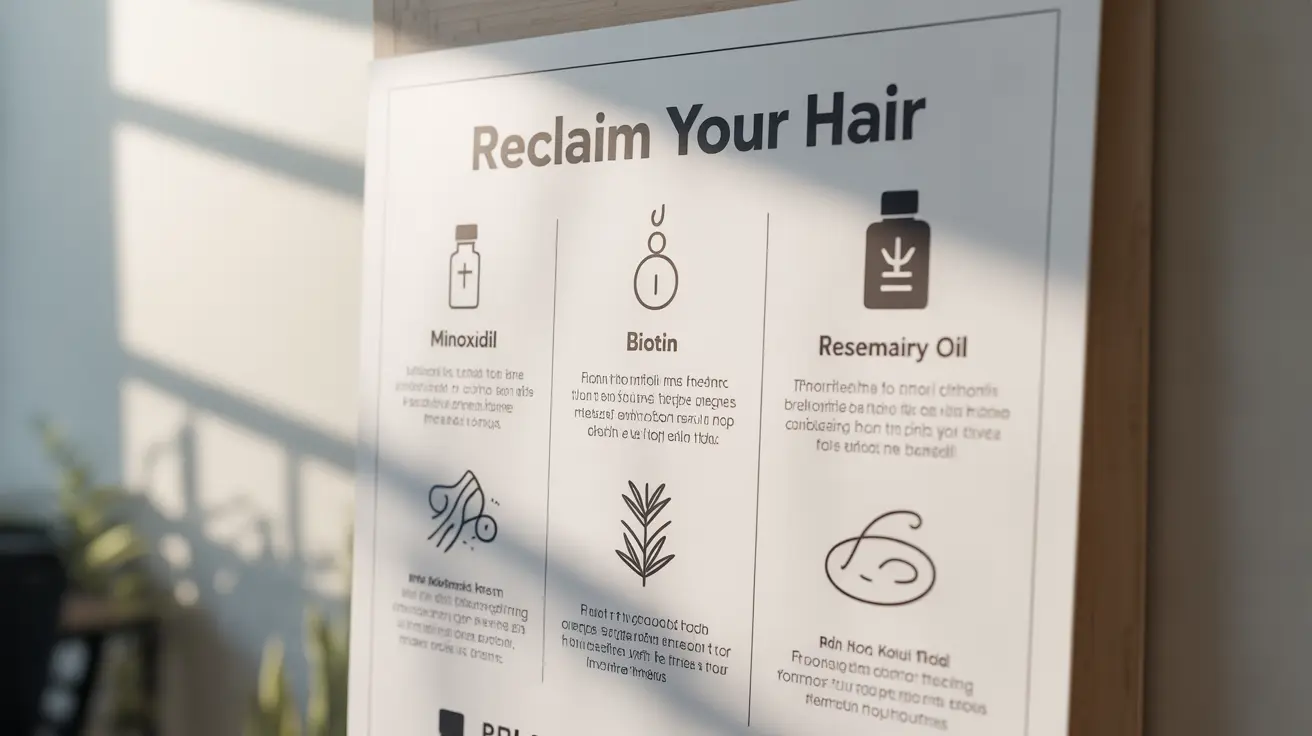Dealing with thinning hair can be emotionally challenging and impact self-confidence, but understanding the causes and available solutions can help you take control of your hair health. Whether you're experiencing gradual hair thinning or noticed sudden changes in your hair's density, there are various treatments and strategies available to help manage this common concern.
This comprehensive guide will explore effective ingredients in hair care products, lifestyle modifications, and when to seek professional help for thinning hair. By understanding these aspects, you can make informed decisions about your hair care routine and treatment options.
Understanding Hair Thinning and Its Causes
Hair thinning can occur due to various factors, including genetics, hormonal changes, aging, nutritional deficiencies, and certain medical conditions. Female or male pattern baldness, known medically as androgenetic alopecia, is one of the most common causes of progressive hair thinning.
Other contributing factors may include:
- Stress and anxiety
- Hormonal imbalances
- Medical treatments like chemotherapy
- Autoimmune conditions
- Poor nutrition
- Harsh hair care practices
Key Ingredients for Thinning Hair Solutions
When choosing hair care products for thinning hair, certain ingredients have shown promising results in improving hair density and scalp health:
Proven Active Ingredients
- Minoxidil: FDA-approved for promoting hair growth
- Ketoconazole: Helps combat scalp conditions that may contribute to hair loss
- Biotin: Supports healthy hair growth and strength
- Saw Palmetto: May help block DHT, a hormone linked to hair loss
- Caffeine: Stimulates hair follicles and promotes growth
Natural Strengthening Components
- Essential oils (rosemary, peppermint)
- Amino acids and proteins
- Vitamins B5, B7, and E
- Natural botanicals like aloe vera and green tea
Optimizing Your Hair Care Routine
A proper hair care routine can significantly impact the appearance and health of thinning hair:
Daily Care Practices
- Use gentle, sulfate-free cleansers
- Avoid harsh brushing, especially when hair is wet
- Minimize heat styling and chemical treatments
- Pat hair dry instead of rubbing vigorously
- Use leave-in treatments with protective ingredients
Styling Tips for Fuller-Looking Hair
- Choose volumizing products without heavy oils
- Consider shorter hairstyles that create the illusion of thickness
- Use dry shampoo between washes to add volume
- Avoid tight hairstyles that can cause traction alopecia
Supporting Hair Health Through Lifestyle
Complementary lifestyle changes can enhance the effectiveness of your hair care routine:
- Maintain a balanced diet rich in proteins and vitamins
- Stay hydrated and manage stress levels
- Get regular exercise to improve circulation
- Consider supplements after consulting with a healthcare provider
- Protect your hair from environmental damage
When to Seek Professional Help
While some hair thinning is normal, certain signs warrant medical attention:
- Sudden or severe hair loss
- Patchy hair loss or bald spots
- Scalp irritation or pain
- Hair loss accompanied by other symptoms
- Family history of early baldness
Frequently Asked Questions
What are the most effective ingredients to look for in shampoos for thinning hair? The most effective ingredients include minoxidil, ketoconazole, biotin, saw palmetto, and caffeine. Look for products containing these active ingredients along with natural strengtheners like amino acids and vitamins.
How can shampoo help improve the appearance of thinning hair and scalp health? Specialized shampoos can remove buildup that clogs follicles, provide essential nutrients to the scalp, and create the appearance of fuller hair through volumizing ingredients. They can also help maintain optimal scalp health, which is crucial for healthy hair growth.
Are there any shampoos or treatments that can actually stop or reverse hair thinning? While no shampoo can completely stop or reverse hair thinning, FDA-approved ingredients like minoxidil have shown effectiveness in slowing hair loss and promoting new growth. Results vary by individual and depend on the underlying cause of hair thinning.
What lifestyle changes or complementary treatments can support hair health alongside using shampoo? A healthy diet, stress management, gentle hair care practices, and regular exercise can support hair health. Additionally, supplements like biotin and vitamin D may help when taken under medical supervision.
When should I see a doctor if I notice sudden or severe hair thinning? Consult a healthcare provider if you experience sudden hair loss, noticeable bald patches, scalp pain or irritation, or if hair thinning is accompanied by other symptoms. Early intervention can often lead to better outcomes.




